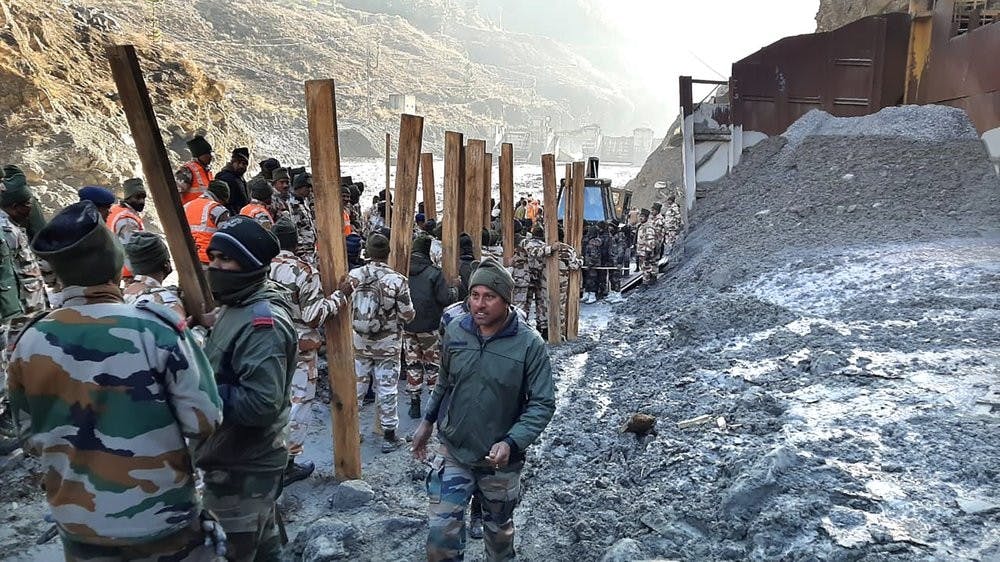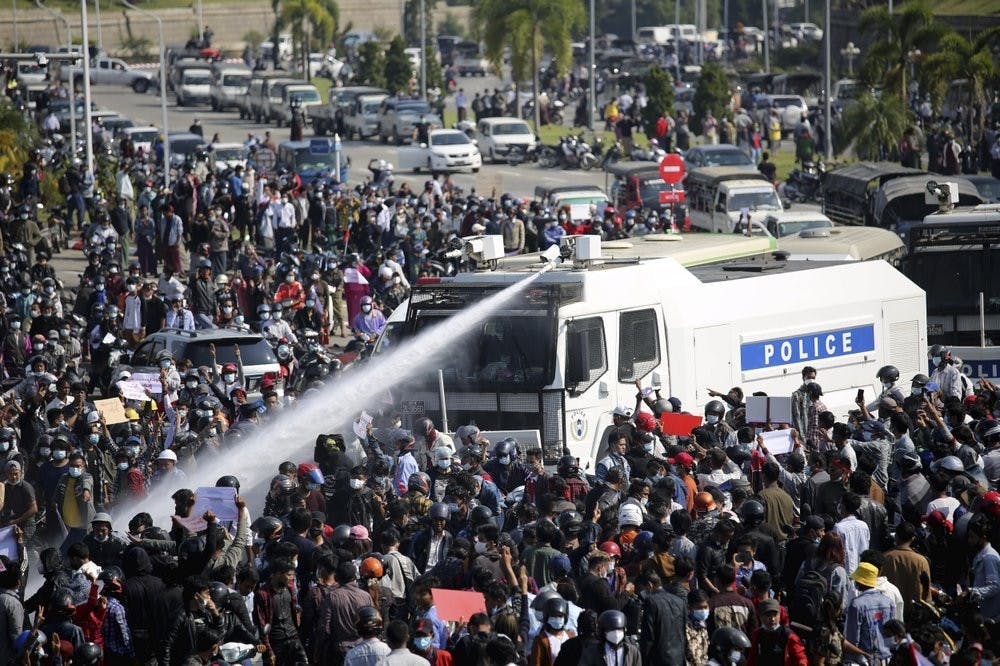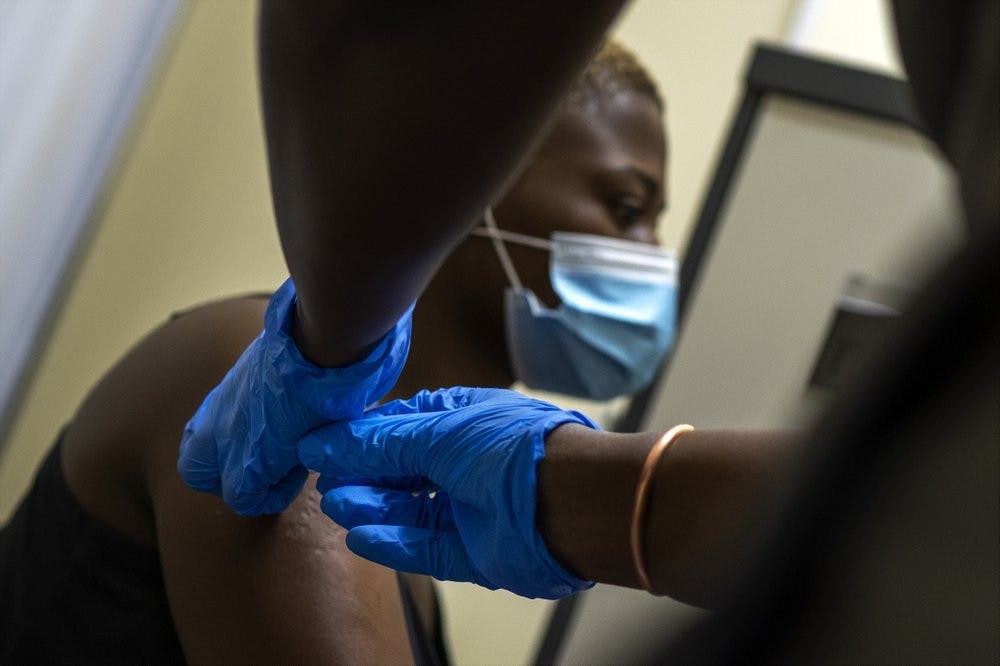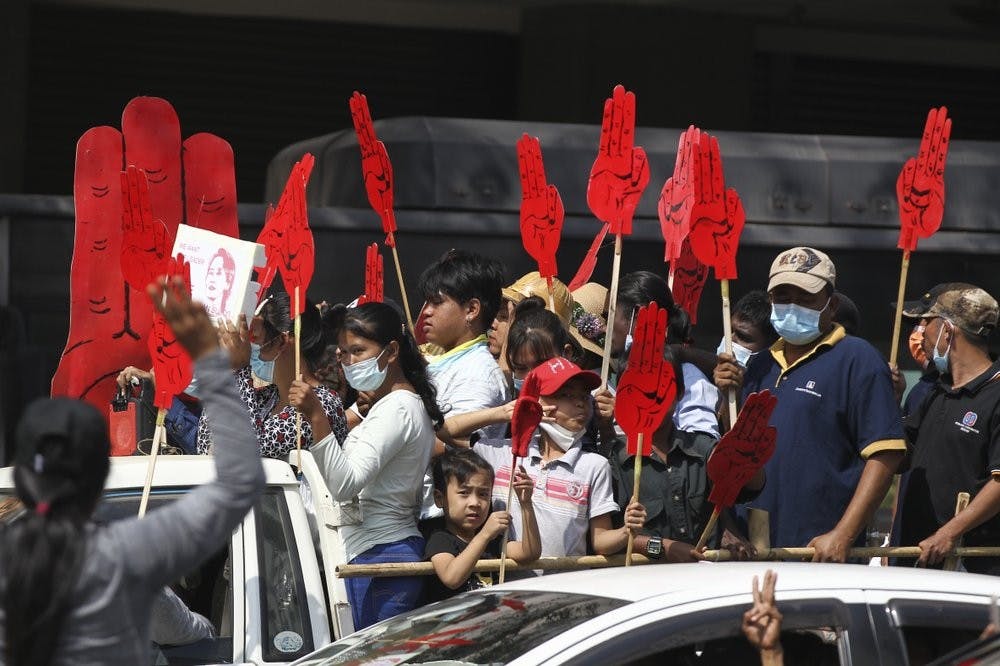Editor’s Note: This listicle is part of a weekly series by The Ball State Daily News summarizing five stories from around the world. All summaries are based on stories published by The Associated Press.
A rescue effort begins after an Indian glacier flood, Moscow's jails are overcrowded with opposition protestors, a water cannon is fired at protestors in Myanmar, South Africa suspends its AstraZeneca vaccine effort and top diplomats in the United States and China discuss issues that have strained their relationship make up this week's five international stories.

Rescuers in India digging for 37 trapped in glacier flood
Rescuers in northern India worked Feb. 8 to rescue more than three dozen power plant workers trapped in a tunnel after part of a Himalayan glacier broke off and sent a wall of water and debris rushing down a mountain in a disaster that has left at least 18 people dead and 165 missing. More than 2,000 members of the military, paramilitary groups and police have been taking part in search-and-rescue operations in the northern state of Uttarakhand after Sunday’s flood, which destroyed one dam and washed homes downstream. Officials said the focus was on saving 37 workers who are stuck inside a tunnel at one of the affected hydropower plants.

Moscow's jails overwhelmed with detained Navalny protesters
Detainees are recounting their miserable experiences as Moscow jails were overwhelmed following mass arrests from protests in support of opposition leader Alexei Navalny this week. They described long waits to be processed through the legal system and crowded conditions with few coronavirus precautions. Some of the protesters were beaten on the streets by riot police or subjected to other abuse. More than 11,000 protesters were reported detained across Russia in the pro-Navalny rallies on two straight weekends last month and in Moscow and St. Petersburg on Feb. 2, after he was ordered by court to serve nearly three years in prison.

Water fired at crowd as anti-coup protests swell in Myanmar
Police fired a water cannon Monday at hundreds of protesters in Myanmar’s capital who are demanding the military hand power back to elected officials, as demonstrations against last week’s coup intensified and spread to more parts of the country. The demonstrations in Naypyitaw, ongoing for several days, are especially significant since the city has no tradition of protest and has a heavy military presence. A protest also swelled at a major downtown intersection in the country’s largest city, Yangon, with people chanting slogans, raising a three-finger salute that is a symbol of resistance and carrying placards saying, “Reject the military coup” and “Justice for Myanmar.”

South Africa suspends AstraZeneca vaccine drive
South Africa has suspended plans to inoculate its front-line health care workers with the Oxford-AstraZeneca vaccine after a small clinical trial suggested that it isn’t effective in preventing mild to moderate illness from the variant dominant in the country. The study, which hasn’t yet been peer-reviewed, involved 2,000 people, most of whom were young and healthy. South Africa received its first 1 million doses of the AstraZeneca vaccine last week and was expected to begin giving jabs to health care workers in mid-February. The disappointing early results indicate that an inoculation drive using the AstraZeneca vaccine may not be useful.

US, China top diplomats discuss key issues, show differences
The top American and Chinese diplomats spoke Saturday in the first major exchange between the countries since President Joe Biden took office and touched on several critical issues that have strained their ties. China’s top diplomat Yang Jiechi and U.S. Secretary of State Antony Blinken discussed in a phone call tension points in the bilateral relationship between the two, notably the situation in Xinjiang, home to the Uighur minority whose treatment is heavily criticized in the West, as well as Hong Kong and Taiwan. Blinken said the U.S. would work with allies to hold China accoutable while the Chinese side maintained that Xinjiang, Hong Kong and Tibet were strictly internal affairs and they won’t tolerate any foreign interference, Xinhua reported.





